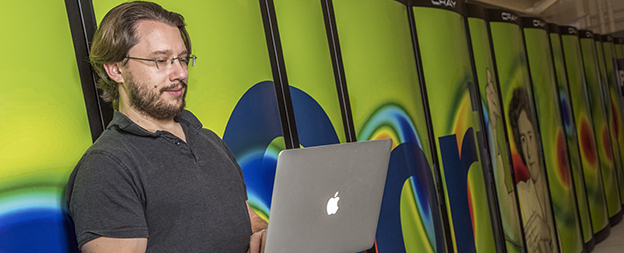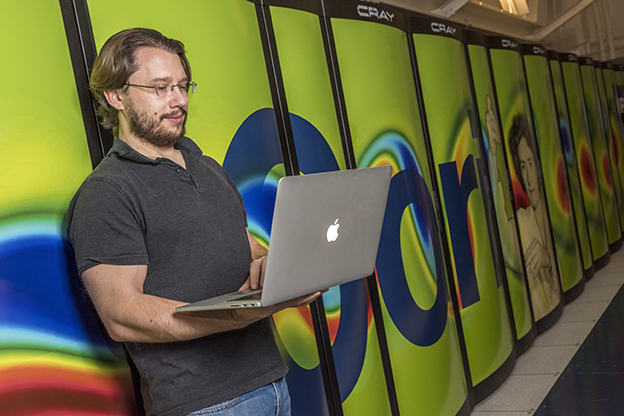Just five years after joining Berkeley Lab as a Physics Division fellow, Zach Marshall is leading an international team of researchers in search of supersymmetry — the theory that every known particle has a “superpartner” particle. If supersymmetry — or SUSY — is proven true, the number of particles known to exist in the universe would double. To find it, CERN’s ATLAS detector data set will soon grow by a factor of 10, from 250 petabytes to a couple of exabytes. The problem, says Marshall, “is that the amount of computing power that we can afford” to process that data “falls short of what we need by about a quarter billion dollars.”
Helping Researchers Balance the Load
Now with funding from an Early Career Laboratory Directed Research and Development award announced last November, Marshall and his team are building a powerful super-scheduling platform that will help particle physicists process more data faster without investing in costly new computing infrastructure. This super-scheduler could tap into the vast network of computing resources that already exists — from NERSC’s Cori, the eighth most powerful supercomputer in the world, to the humble desktop computer — and deploy any computer’s free “small slot” capacity to run a specific type of process, such as processing or analyzing data, or predicting what a detector will see, at a particular moment in time.
By assigning specific jobs to specific computing resources, this super-scheduler could prevent a detector from inundating a supercomputer with jobs that demand a single resource, such as data input, data output, or memory, for example — and avoid crashing outside servers, a win-win for everyone, whether they’re working on particle physics experiments at CERN’s ATLAS or ALICE, neutrino experiments at Daya Bay, or dark matter experiments at the LUX-ZEPLIN (LZ) detector.
“Before winning this award, we were worried that we wouldn’t have the resources to tackle this problem. But now we can take a deep breath and solve it in a way that helps everyone. With Berkeley Lab’s multidisciplinary approach to science, I’m optimistic that we can find a solution,” Marshall says.

